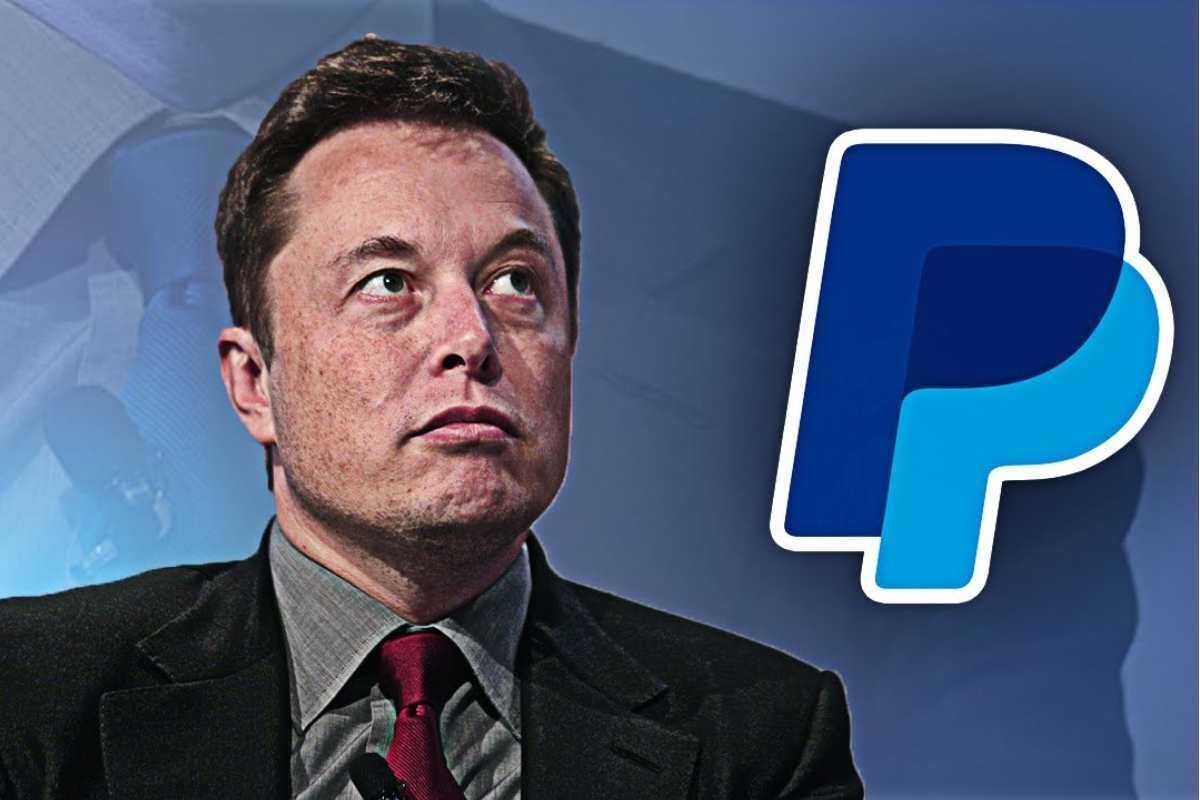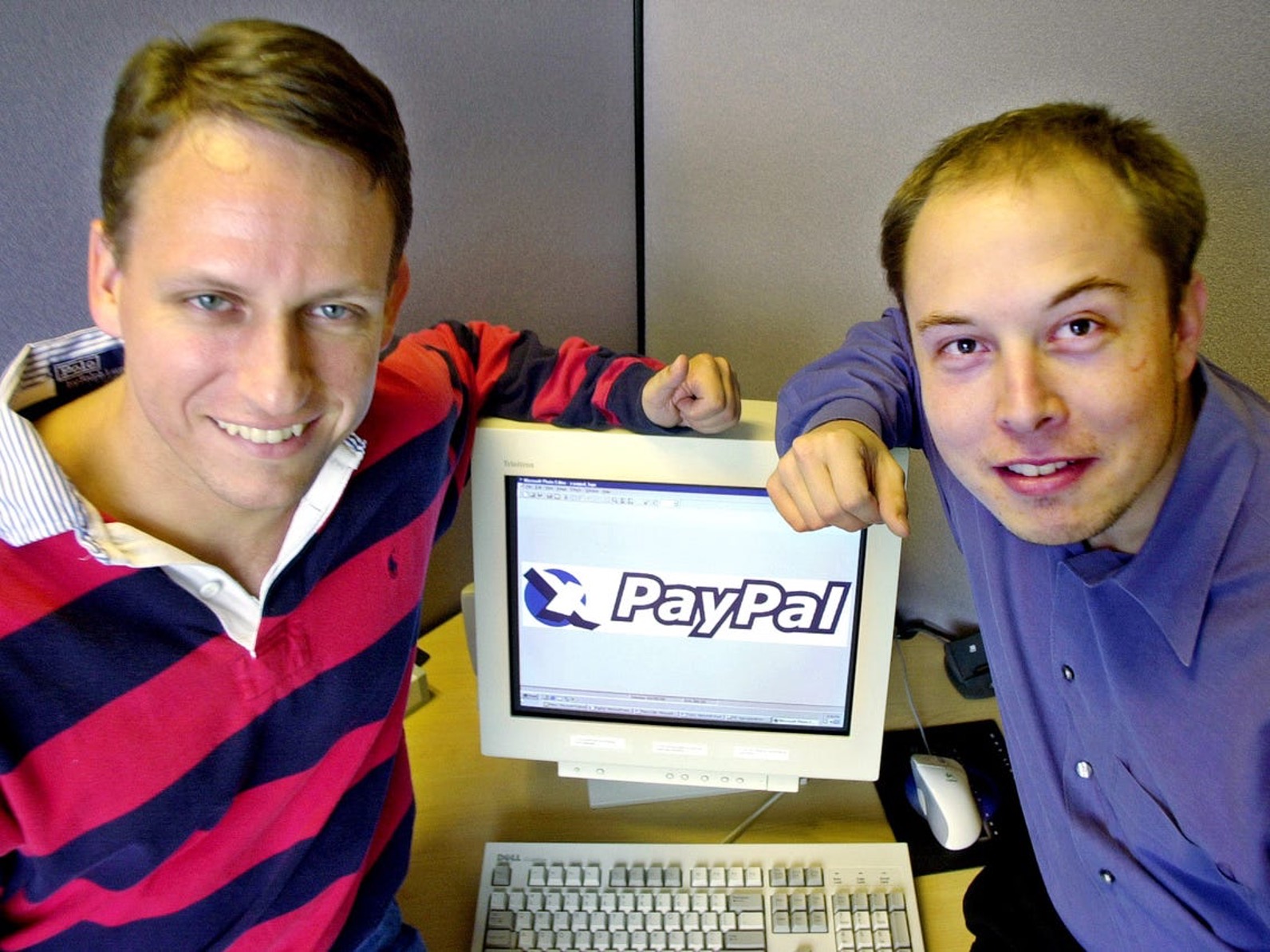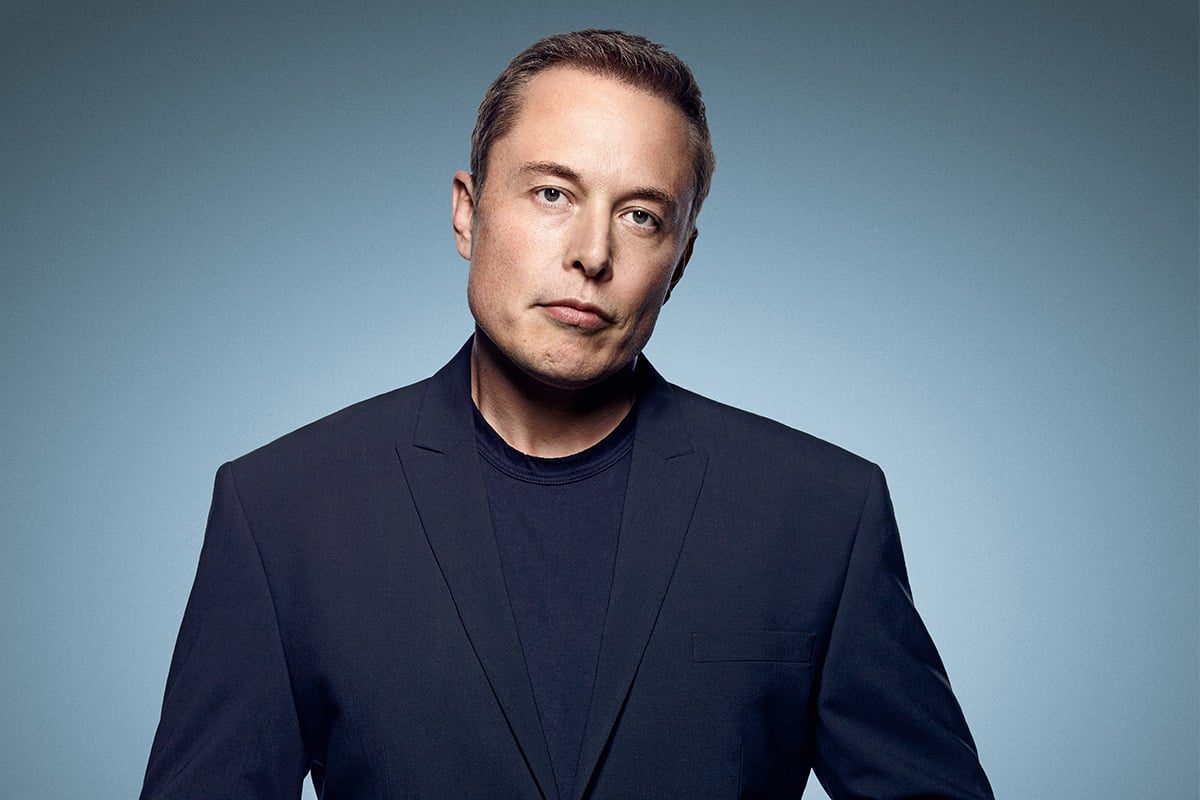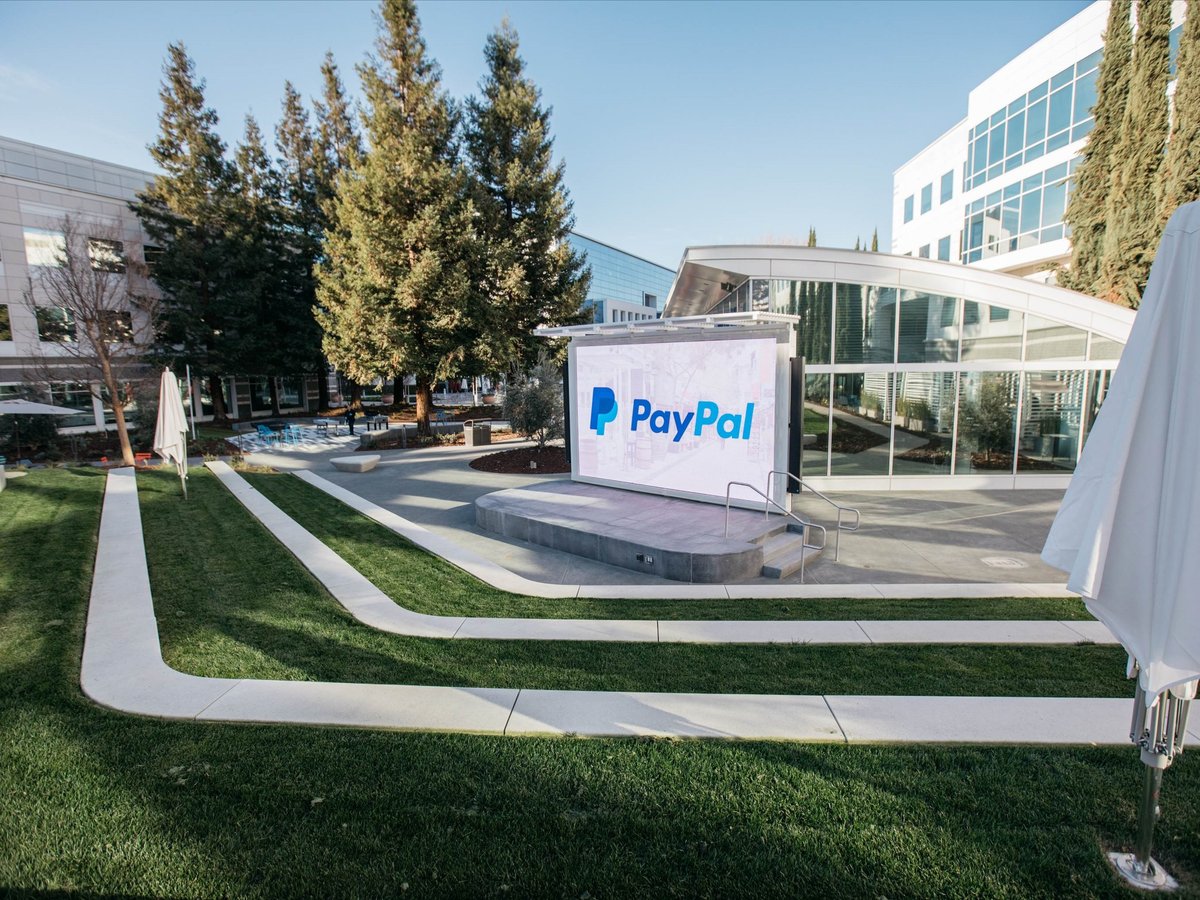Introduction
Welcome to the fascinating story of PayPal, the revolutionary online payment system that has transformed the way we transact in the digital world. At the heart of PayPal’s creation is the visionary entrepreneur Elon Musk, who played a pivotal role in its early development.
PayPal emerged during the dot-com era when online shopping was gaining momentum. It offered a safe and convenient way for individuals and businesses to send and receive money electronically. Today, PayPal has become a household name and a trusted global platform for e-commerce transactions.
In this article, we’ll delve into the journey of PayPal and explore the key milestones that shaped its success. We’ll also uncover the pivotal role played by Elon Musk in the company’s founding and growth.
From his early ventures to his groundbreaking contributions to the world of online payments, Elon Musk’s entrepreneurial spirit and innovative mindset have shaped PayPal into the powerhouse it is today.
Join us as we dive into the world of PayPal and discover the intriguing story behind its creation. Through this narrative, we’ll gain insights into how Elon Musk’s vision transformed the way we conduct financial transactions and paved the way for the digital economy as we know it today.
Early Life and Education
Elon Musk was born on June 28, 1971, in Pretoria, South Africa. From a young age, he displayed exceptional intelligence and a passion for technology. Musk’s early exposure to computers and programming sparked his curiosity and set him on a path of innovation.
After completing his primary education in South Africa, Musk relocated to Canada to attend Queen’s University. He later transferred to the University of Pennsylvania, where he earned two Bachelor’s degrees in physics and economics.
Musk’s academic journey provided him with a solid foundation in critical thinking and problem-solving, skills that would prove invaluable in his entrepreneurial pursuits.
While at university, Musk became captivated by the emerging potential of the internet. He recognized the boundless opportunities it presented and realized that he wanted to be at the forefront of this digital revolution.
Driven by his insatiable curiosity and desire to make a meaningful impact, Musk ventured into the world of entrepreneurship soon after completing his studies. He immersed himself in various tech startups, gaining invaluable experience and industry insights along the way.
Musk’s early experiences in the tech industry laid the groundwork for his future endeavors. Armed with a deep understanding of the potential of the internet and inspired by his entrepreneurial spirit, Musk set out to create innovative solutions that would revolutionize the way we interacted and conducted business online.
Little did he know that his next venture would not only redefine online payments but also catapult him to international fame and success. With his sights set on disrupting the financial industry, Musk was about to embark on a journey that would change the course of his life and shape the future of online transactions.
Founding of Zip2
Before delving into the creation of PayPal, it’s essential to explore Elon Musk’s entrepreneurial journey with Zip2, which laid the groundwork for his future success in the tech industry.
In 1995, Musk co-founded Zip2 Corporation with his brother Kimbal Musk and business partner Greg Kouri. The company aimed to provide business directories and maps for newspapers, allowing them to offer online versions of their publications.
Zip2 quickly gained traction and forged partnerships with major newspapers, including The New York Times and The Washington Post, revolutionizing the way information was accessed and shared. This early success marked the first significant achievement for Elon Musk and set the stage for his future endeavors.
While Zip2 was making waves in the tech industry, Musk faced numerous challenges along the way. He found himself in the position of needing to make tough decisions to keep the company afloat. Despite these obstacles, Musk’s determination and visionary leadership propelled Zip2 forward, securing crucial funding and partnerships that fueled its growth and expansion.
Eventually, in 1999, Compaq Computer Corporation acquired Zip2 for nearly $307 million—an impressive feat for a startup. The successful acquisition not only validated Musk’s entrepreneurial acumen but also provided him with the financial means to embark on his next ambitious venture.
The experience gained through Zip2 laid the foundation for Musk’s understanding of the digital landscape and his ability to identify untapped market opportunities. It also sharpened his business acumen and fuelled his ambition to create innovative solutions that would have a lasting impact on society.
Musk’s journey with Zip2 served as a stepping stone to greater achievements, setting the stage for the next chapter in his entrepreneurial career—the creation of X.com, which would soon transform into the groundbreaking online payment system we now know as PayPal.
Creation of X.com and the Birth of PayPal
After the successful acquisition of Zip2, Elon Musk set his sights on revolutionizing the world of online payments. In March 1999, he founded a company called X.com, with the aim of creating a seamless and secure digital payment platform.
Initially, X.com focused primarily on providing online banking services. However, Musk soon realized the immense potential of creating a system that allowed for easy, peer-to-peer money transfers over the internet.
Recognizing the need for a robust and user-friendly payment platform, Musk redirected the company’s focus towards developing an innovative solution. This marked the birth of what would eventually become PayPal.
With his visionary mindset, Musk assembled a talented team of engineers and developers to bring his vision to life. They worked tirelessly to develop a reliable and secure platform that would enable individuals and businesses to transfer money effortlessly through the internet.
The team’s hard work paid off, and by the end of 1999, X.com had successfully launched its online payment service. The response was overwhelmingly positive, with users embracing the convenience and speed of digital transactions facilitated by X.com.
The innovative platform quickly gained traction and caught the attention of investors seeking to capitalize on the rapidly growing e-commerce industry. In 2000, X.com secured substantial funding through a series of investments and partnerships, cementing its position as a leading player in the online payment space.
Recognizing the potential of X.com, Musk made a bold decision to rebrand the company. In 2001, X.com officially became PayPal—a name that would transform the way people conducted financial transactions online.
PayPal’s success can be attributed in part to Musk’s relentless pursuit of simplicity and ease of use. The platform offered a seamless way for users to send and receive money, eliminating the need for traditional paper checks or complicated wire transfers.
Furthermore, Musk’s unwavering commitment to safety and security gave PayPal users peace of mind. By implementing robust fraud prevention measures and encryption technologies, PayPal set a new standard for online transaction security.
With its user-friendly interface and commitment to security, PayPal quickly gained popularity amongst both individuals and businesses. It became the go-to platform for e-commerce transactions, positioning itself as a trusted intermediary between buyers and sellers worldwide.
The birth of PayPal marked a turning point in the world of online payments. Musk’s relentless pursuit of innovation and his commitment to creating a seamless, secure, and user-friendly experience laid the foundation for PayPal’s remarkable success. Little did he know that PayPal would soon become a global phenomenon and pave the way for the future of digital payments.
The Merger with Confinity
In 2000, while PayPal was gaining traction and reshaping the online payment industry, a company called Confinity was also making waves in the world of digital transactions. Confinity, founded by Max Levchin, Peter Thiel, and Luke Nosek, had developed a popular digital wallet app called “PayPal.”
Recognizing the immense potential for collaboration, Elon Musk and his team at PayPal initiated discussions with Confinity regarding a possible merger. Both companies shared a common vision of revolutionizing online payments, making the merger a logical next step.
In March 2000, the merger between PayPal and Confinity was finalized, bringing together two powerhouses in the fintech industry. The new entity retained the name “PayPal” and became the dominant force in the online payment landscape.
This merger not only pooled the expertise and resources of both companies but also brought together the complementary strengths of their respective teams. The integration process was challenging, but it paved the way for significant improvements and advancements in PayPal’s functionality and user experience.
Furthermore, the merger with Confinity provided PayPal with access to a broader customer base and international markets. This expansion enabled PayPal to accelerate its growth and firmly establish itself as a global leader in the online payment landscape.
While the merger with Confinity undoubtedly brought about numerous benefits for PayPal, it also presented its fair share of challenges. The companies faced significant technical hurdles, operational complexities, and the need to streamline their systems and processes.
However, the collective determination of the PayPal team, led by Elon Musk, helped overcome these obstacles. They worked tirelessly to integrate the technologies, streamline operations, and improve the overall user experience.
Musk’s visionary leadership and his dedication to innovation played a significant role in overcoming these challenges. His relentless pursuit of excellence, coupled with his ability to inspire and motivate the team, propelled PayPal forward during this crucial phase.
Through the merger with Confinity, PayPal solidified its position as the leading online payment platform, setting the stage for its unparalleled growth and future successes. The merged company was well-positioned to disrupt the traditional financial industry and usher in a new era of digital payments.
Success and Expansion of PayPal
Following the merger with Confinity, PayPal experienced a period of unprecedented growth and success. The company’s innovative approach to online payments and its commitment to user convenience propelled it to the forefront of the industry.
One of the key factors contributing to PayPal’s success was its ability to adapt to the rapidly changing e-commerce landscape. The platform seamlessly integrated with popular online marketplaces, such as eBay, making it the preferred payment method for millions of users.
PayPal’s success was further fueled by its international expansion. In 2002, PayPal became available to users outside of the United States, allowing individuals and businesses from around the world to engage in global transactions effortlessly.
With its global reach and trusted reputation, PayPal quickly became the go-to payment solution for international trade and cross-border transactions. The platform was embraced by both buyers and sellers, solidifying its position as the undisputed leader in the online payment industry.
Furthermore, PayPal’s commitment to security and fraud prevention bolstered user confidence. The company implemented robust measures to protect users’ financial information, earning a reputation for its stringent security protocols.
The success of PayPal did not go unnoticed, and in 2002, eBay recognized the potential of the rapidly growing platform. eBay acquired PayPal for $1.5 billion, aiming to enhance the overall user experience on its online marketplace.
Under eBay’s ownership, PayPal continued to thrive, becoming the preferred payment method for eBay shoppers. The integration of PayPal with eBay streamlined the buying and selling process, offering a seamless and secure transaction experience for eBay users.
PayPal’s success and popularity extended beyond eBay, as it expanded partnerships with other major businesses, including online retailers and service providers. Additionally, PayPal introduced innovative features like the “Buy Now” button, making online shopping even more convenient for users.
Over the years, PayPal continued to innovate and adapt to emerging trends and technologies. The company embraced the mobile revolution, developing robust mobile apps that allowed users to make transactions on-the-go. This further solidified PayPal’s position in the digital payment landscape and catered to the needs of the increasingly mobile-centric consumer base.
Through its relentless focus on user satisfaction, continuous innovation, and strategic partnerships, PayPal experienced remarkable growth and attained a level of success that surpassed expectations. Today, it stands as a global leader in the online payment industry, enabling millions of individuals and businesses to transact securely and conveniently across borders.
Acquisition by eBay
In 2002, PayPal caught the attention of the e-commerce giant eBay, which recognized the significant potential and value that the online payment platform offered. Impressed by PayPal’s rapid growth and its seamless integration with eBay’s marketplace, eBay decided to acquire PayPal in a deal valued at $1.5 billion.
The acquisition of PayPal by eBay proved to be a mutually beneficial move. eBay, as one of the leading online marketplaces, recognized the importance of having a reliable and convenient payment method for its users. By integrating PayPal into its platform, eBay aimed to streamline and enhance the overall buying and selling experience for its customers.
Following the acquisition, PayPal became the preferred payment method for eBay transactions, allowing buyers and sellers to complete transactions seamlessly and securely. This integration significantly increased the adoption of PayPal among eBay users, cementing its position as a trusted and widely accepted payment solution.
Moreover, eBay’s global reach and expansive user base provided PayPal with immense opportunities for growth and expansion. The access to eBay’s vast network of buyers and sellers allowed PayPal to expand its user base and establish itself as the go-to payment option for a wide range of online transactions.
The acquisition by eBay also opened doors to new markets and international growth for PayPal. The global presence and brand recognition of eBay facilitated the expansion of PayPal’s services beyond the United States, enabling users from around the world to transact securely and conveniently.
Additionally, eBay’s commitment to innovation aligned with PayPal’s growth strategy, allowing for the development of new features and functionalities. PayPal introduced tools and services tailored to the needs of eBay sellers, catering to their unique requirements and facilitating smoother transactions.
Under eBay’s ownership, PayPal continued to experience remarkable growth and success. The integration with eBay helped solidify PayPal’s position as a trusted and widely used online payment platform, propelling it to new heights in terms of transaction volume and revenue.
While PayPal continued to operate as a subsidiary of eBay, it maintained its brand identity and focused on expanding its presence beyond the eBay ecosystem. PayPal forged partnerships with other businesses and expanded its merchant services, enabling users to make secure transactions on various online platforms.
Overall, the acquisition by eBay marked a pivotal moment in PayPal’s history, catapulting it to the forefront of the online payment industry. The integration with eBay accelerated PayPal’s growth, expanded its user base, and positioned the company for even greater success in the evolving digital economy.
Elon Musk’s Departure from PayPal
Despite the remarkable success of PayPal under his leadership, Elon Musk’s tenure at the company was not without its challenges. In 2002, shortly after PayPal’s acquisition by eBay, Musk found himself at odds with other members of the leadership team over strategic decisions and the future direction of the company.
As tensions grew and differences in vision emerged, Musk made the difficult decision to step down as CEO of PayPal in 2002. His departure marked the end of an era for PayPal and signaled a new chapter for both Musk and the company.
While Musk may have moved on from his official role at PayPal, his influence and impact on the company were undeniable. His visionary mindset and entrepreneurial spirit had shaped PayPal into the global powerhouse it had become, revolutionizing online payments and setting the stage for its future success.
Following his departure from PayPal, Elon Musk went on to pursue other entrepreneurial ventures, including Tesla and SpaceX, which have significantly disrupted the automotive and aerospace industries, respectively.
However, Musk’s departure from PayPal did not sever all ties with the company. In fact, Musk remained an important figure in PayPal’s history as one of the largest individual shareholders. He continued to have a vested interest in the company’s success and maintained a strong connection to the fintech industry.
Musk’s departure from PayPal not only marked a significant transition for the company but also showcased his entrepreneurial drive and unwavering determination to make a lasting impact on the world. It demonstrated his willingness to take risks and pursue new opportunities in uncharted territories.
Looking back, it is clear that Elon Musk’s time at PayPal played a pivotal role in shaping not only his own entrepreneurial journey but also the trajectory of the online payment industry as a whole. His departure from PayPal only fueled his desire to push boundaries and drive innovation in other groundbreaking ventures.
While Musk’s departure marked the end of his active involvement with PayPal, his legacy within the company and the fintech industry as a whole cannot be overstated. His visionary ideas, bold leadership, and relentless pursuit of innovation continue to inspire and influence the future of digital payments.
Legacy and Impact of PayPal
The legacy of PayPal extends far beyond its role as a groundbreaking online payment platform. Its impact on the way we conduct financial transactions continues to reverberate throughout the world, reshaping the digital economy and revolutionizing the fintech industry.
PayPal’s user-friendly interface, secure transactions, and commitment to customer satisfaction have set a new standard for online payments. The platform’s convenience and reliability have helped democratize e-commerce, empowering individuals and businesses to engage in seamless transactions across borders.
One of the key contributions of PayPal is its role in fostering trust in online transactions. By implementing stringent security protocols, PayPal has made significant strides in mitigating fraud and protecting users’ financial information. This commitment to security has paved the way for wider adoption of online payments and has given consumers peace of mind when making digital transactions.
Moreover, PayPal’s success has spurred the emergence of numerous other digital payment platforms seeking to replicate its achievements. The success and growth of PayPal have inspired a wave of innovation and competition in the fintech industry, leading to the development of new, innovative payment solutions.
Furthermore, PayPal’s integration with major online marketplaces, such as eBay and Amazon, has transformed the way people buy and sell goods and services. The seamless payment process facilitated by PayPal has eliminated the need for cumbersome bank transfers and provided a reliable, efficient payment solution for individuals and businesses worldwide.
PayPal’s global expansion has also had a tremendous impact, enabling individuals and businesses in countries without a well-established banking infrastructure to participate in the digital economy. This inclusivity has opened up new opportunities for entrepreneurs and small businesses, empowering them to reach a global customer base and grow their enterprises.
Additionally, PayPal has played a pivotal role in supporting charitable organizations and grassroots initiatives. Its platform facilitates easy and transparent online donations, making it easier for individuals and organizations to contribute to causes they care about. This has helped drive positive change and encourage philanthropic efforts on a global scale.
Elon Musk’s involvement in PayPal has shaped its legacy and impact. His visionary leadership and dedication to innovation laid the foundation for PayPal’s success and solidified its position as a leader in the fintech industry. Musk’s departure from PayPal marked the beginning of his transformational journey in other ventures, but his influence on PayPal’s growth and direction cannot be understated.
Ultimately, the legacy and impact of PayPal extend far beyond its financial achievements. By revolutionizing the way we conduct online transactions, PayPal has reshaped the digital landscape, empowered businesses and individuals, and set a new standard for convenience, security, and trust in the world of online payments.
Conclusion
The creation and success of PayPal have fundamentally transformed the way we transact in the digital world. From its humble beginnings to its status as a global leader in online payments, PayPal has left an indelible mark on the fintech industry.
Under the visionary leadership of Elon Musk, PayPal emerged as a game-changer, revolutionizing the way individuals and businesses send and receive money online. Musk’s entrepreneurial drive, innovative mindset, and commitment to simplicity and security paved the way for PayPal’s remarkable growth.
PayPal’s impact goes far beyond its role as a payment platform. It has empowered small businesses, fostered e-commerce growth, and enabled individuals worldwide to participate in the global economy. The platform’s integration with major online marketplaces and its commitment to security have instilled trust and confidence in online transactions.
Furthermore, PayPal’s global expansion and its commitment to charitable initiatives have extended its reach to underserved populations, providing them with access to financial services and digital opportunities.
Elon Musk’s departure from PayPal marked a turning point in the company’s journey, but his influence and legacy endure. His entrepreneurial spirit, visionary ideas, and unwavering commitment to innovation continue to inspire and shape the direction of the fintech industry.
As PayPal continues to evolve in the ever-changing digital landscape, it remains at the forefront of innovation, adapting to emerging technologies and trends. Its enduring legacy as a disruptor in the online payments space will continue to drive positive change and empower individuals and businesses for years to come.
In conclusion, PayPal’s impact on the fintech industry cannot be overstated. Its success story, intertwined with the entrepreneurial vision of Elon Musk, has reshaped how we conduct financial transactions, fostered global connectivity, and set new standards for convenience, security, and trust in the digital economy.

























